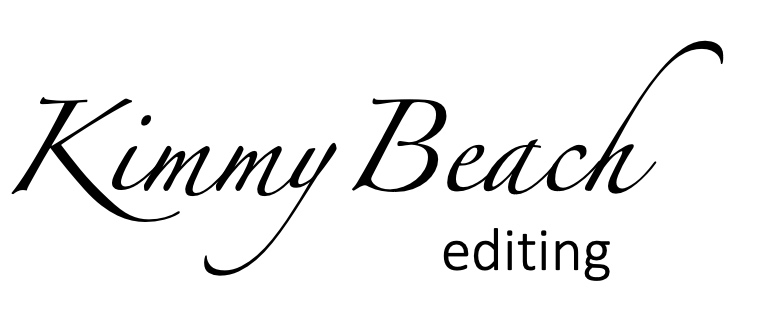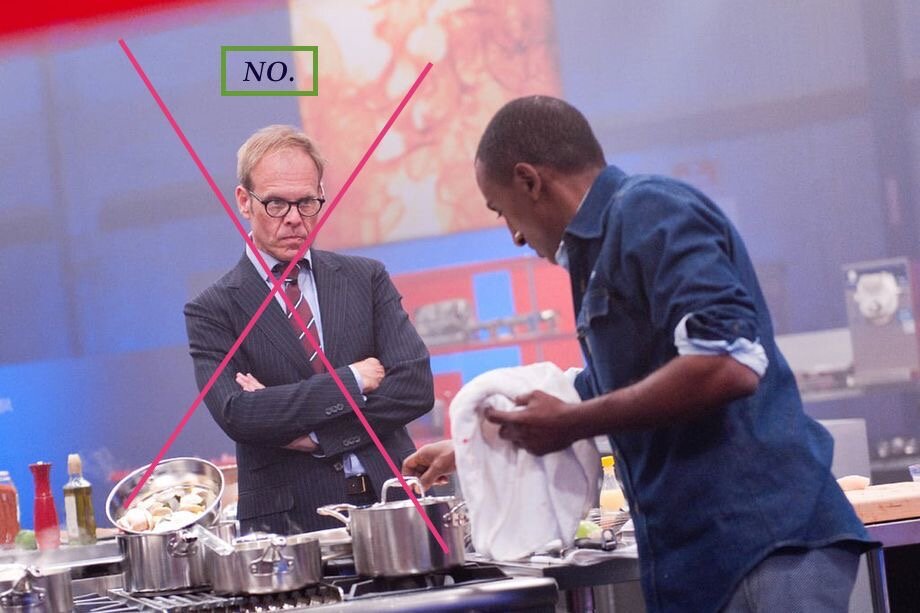Are there too many cooks in your literary kitchen?
I miss these dudes…
Judging by the amount of time I spend talking about cooking shows here and in my self-editing e-course, you might get the impression that I actually enjoy them. I don’t, but I live with and love a man who does, so if he’s home, there’s usually someone being eliminated and thrown out of the kitchen.
The Iron Chef (the original one from Japan: not the shitty knock-off American one) remains the only elimination cooking show I’ve ever enjoyed. I loved their secret ingredients. Globefish! Whatever that is. Edible Bird’s Nest! Sea Urchin!
Suffice to say that those recipes didn’t make it to our table, but it was always highly entertaining to watch these poor dudes trying to whip up, say, squid ink ice cream. I’ll take a pass on that, though the judges thought it was wonderful.
I recall this gal in particular. She loved everything that was put in front of her. Everything was an explosion of flavour in her mouth!
But sadly, only one chef could be the Iron Chef each week.
HERE’S THE SMOOTHEST SEGUE IN THE HISTORY OF WRITING!
How many chefs are in your literary kitchen? Three? Eight? Thirty-nine? If you’re just starting out (or even if you’re well established), it’s probably too many.
I’ve been writing seriously since 1993, and back then, I had entire creative writing classes weighing in on my shitty first drafts. Often these people were less skilled than I was, but certainly not all of them. We balanced out okay.
I was a member of a few writing groups for several years, formal and informal. But I whittled as I gained experience. From once having an acknowledgements section of pages and pages in my early books, I’ve now narrowed it down considerably.
There are approximately twelve people on planet Earth who get to see my work in draft form. That’s not because I think I’m so great. I sure as hell don’t. It’s because I’ve learned over the years that having too many literary chefs is a kind of permission asking that I’m working on cutting from my life.
I am the WORLD’S MOST DEVOTED FAN of outside eyes on my work. But now, I narrow it down to who I think will be the best reader for this particular manuscript. Often, it’s only one person, and I’ll choose someone else for another project. If I feel a project won’t resonate with reader friend X, I’ll ask reader friend Y to look at it instead.
These relationships are always reciprocal in nature. Over the years, I’ve read work for people and the favour has not been returned. I fell down on those, as it’s my responsibility as an established author to let younger, less experienced writers know that reciprocity is A Thing, and more so, an Expected Thing.
~~
What I see on the new Iron Chef shows illustrates my point here perfectly. Often, a chef (and their sous chefs) will be madly running around their corner of kitchen stadium, trying not to crash into one another with boiling pots of Bechamel sauce to whip up moose nose soufflé (or whatever), and the host or announcer will be in their face, leaning over pots and saying, “You’d better get at those moose nostrils. You’re running out of time!” Chef (in outside TV voice): “Ha ha ha!! Yes, I guess I’d better!” While the interior monologue has got to be this: “Get the fuck out of my kitchen, you looming know-it-all!”
That’s where you come in when it comes to having your work edited. You don’t need this guy snarling over your manuscript:
You can tell how much I care about you, dear reader, as I previously couldn’t imagine any circumstances under which I would put that guy’s face willingly on my blog.
But here, he’s doing me a favour. Not only is he demonstrating the kind of editor you don’t want: scowly and in your way, but he’s also showing you who he is right off the bat. This kind of editor tries to stamp their own will on your work. It’s this person’s way or the highway. Who needs it?
~~
Then there’s the opposite, which is, of course, Ms. Valerie Bertinelli. You have to feel for a gal who had to call her ex-mother-in-law, “Mrs. Van Halen” the entire time she was married to Eddie. Ugh. Here she is in what I call THE HAPPIEST DISNEYLAND KITCHEN ON THE FACE OF THE PLANET!
Somebody give this woman a salad, and she’d be the star of Women Laughing Alone With Salad! Friends! Family! Boring nephews! Hugs galore!
In terms of outside eyes or editors, Valerie is the yes-gal. “It’s wonderful! Don’t change a thing! It’s perfect exactly as it is!”
As you already know, this is never true. Everything needs work, and a pat on the back doesn’t cut it. You’re a serious writer. You want to know how to improve your work. You don’t want kitten stickers and smiley faces. You want editing help.
So how to find a balance? Test drive your trusted readers. Narrow the field to the ones who support you in friendship and in writing. Trust that they will give you the blend of support and critique that you need. If they’re too harsh on you, or they tell you your every syllable should be on a stone tablet, find someone who falls in the happy medium.
I have readers from whom I expect hard-hitting, no-holds-barred critique, but always in the spirit of respect and friendship and a genuine desire to help. I also have those (and sometimes it can be the same person) who go a bit gently on me when I’m feeling really vulnerable about a piece of work. It’s taken me years to find these people and to paraphrase Polonius, I grapple them to my soul with hoops of steel.
My approach is a mix. I won’t hold back where I see that the work needs improvement, but I do it gently and kindly. I’m a question asker. “What do you think about maybe changing it to this, for X reason?” It’s taken me a long time to get to that point in my editing career: the fine balance between helping and coddling. I’m not a coddler, but I will certainly throw in a WOW! emoji if I think a particular passage is great.
~~
In your search for excellent readers of your work, employ the Iron Chef methodology. The difference is that when you eliminate someone from your literary kitchen, you don’t have to tell them about it. You can just move on to others who are closer to what you need.
This above all: you are under absolutely no obligation to show a particular person your work simply because they ask to see it. You can say NO.





